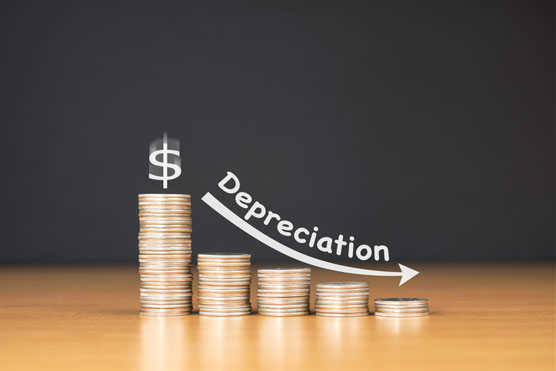An Economist with Data Bank, Mr. Courage Martey has intimated that the depreciation of the Cedi projected to hit the GHS6 mark cannot be ruled out, despite the fairly strong behavior of the cedi throughout 2020 and the past 18 calendar days.
He made this remarks in reaction to a report released by the Economic and Finance Think Tank, Center for Economics Finance and Inequality Studies (CEFIS), that the cedi will hit GHS6.45 to the dollar by the end of this year.
Speaking in an interview yesterday, January 19, 2020, he indicated that, so far this year, the cedi has shown stability, losing only 0.01 percent against the dollar on the interbank market. However, the projected depreciation of the cedi to GHS6 by end of year, according to the report is not without merit since that will be equivalent to a depreciation of about 5 percent this year.
“…Looking at where we are on the rating market, where we have GHS5.93 to the dollar. If you move from GHS5.93 to GHS6 or a little over that against the dollar by end of year and not today, that will be equivalent to some 5% depreciation this year.
“Now, if you do a historical analysis of depreciation, you will notice that 5% is not out of the question at all, because averagely in the last four years for instance, we’ve done 7.5% average depreciation.
“So, it tells you that, if we go by the cedi’s trend performance, GHS6 is a possibility. And again, not just because it is stable today, but that there is a timeline of up and down movement that could move us towards that level.”

Based on the projections of the think-tank, the expected rebound of the economy will not be strong enough to support the cedi’s stability for 2021.
It considers that “the immediate effect of the pandemic will linger beyond 2021, which will also affect the cedi’s firm stability going forward.”
CEFIS also noted that the cedi will struggle this year on the back of some financial commitments that the government is likely to undertake due to the many projects embarked upon in the build up to the 2020 election.
“This excess liquidity without a corresponding output will destroy most of the gains especially the exchange rate stability in 2020 made in the prior election year. This has also been factored in our forecast of Ghana cedi exchange rate for 2021.”
The Think-tank also expects exports to struggle this year despite the opening up of economies this year. Government revenue shortfall that is likely to affect the financing of the budget deficit, also informs the negative outlook of the cedi’s performance. Also, the think tank anticipates that government’s financing might come under intense pressure, as most debts are expected to mature this year.
Bank of Ghana’s action to maintain cedi stability
Concerned with the Central Bank’s actions in ensuring the stability of the cedi, Mr. Courage Martey posited that, the Central Bank’s actions in stabilizing the cedi, so far has been positive and that explains the cedi’s current stability.
“…what they’ve done so far and have signaled that they would do gives a lot of confidence in the cedi, and that is why we are seeing this kind of stability.
“In addition, we noticed that there is a lot of foreign portfolio flows into the country. And so far, that has been a supportive factor or an anchor for the cedi’s stability year-to-date. Now, when those funds come in, there is a high chance of having ‘hot money’ among those portfolio flows.
“… It is important to monitor this kind of ‘hot money’ flows so that they don’t distort currency stability.”
He also noted that the Central Bank should ensure that there is repatriation of export proceeds back within the domestic economy, within the stipulated time particularly by big multinationals in the oil and gas sector as well as the mining sector.
He also highlighted that the fiscal situation of the economy where the sizable monetization of the deficit that was experienced in 2020 must not be repeated in 2021, since it has the potential of affecting the cedi negatively.
Read also: Will a policy Rate cut be sufficient to drive down lending rate?























